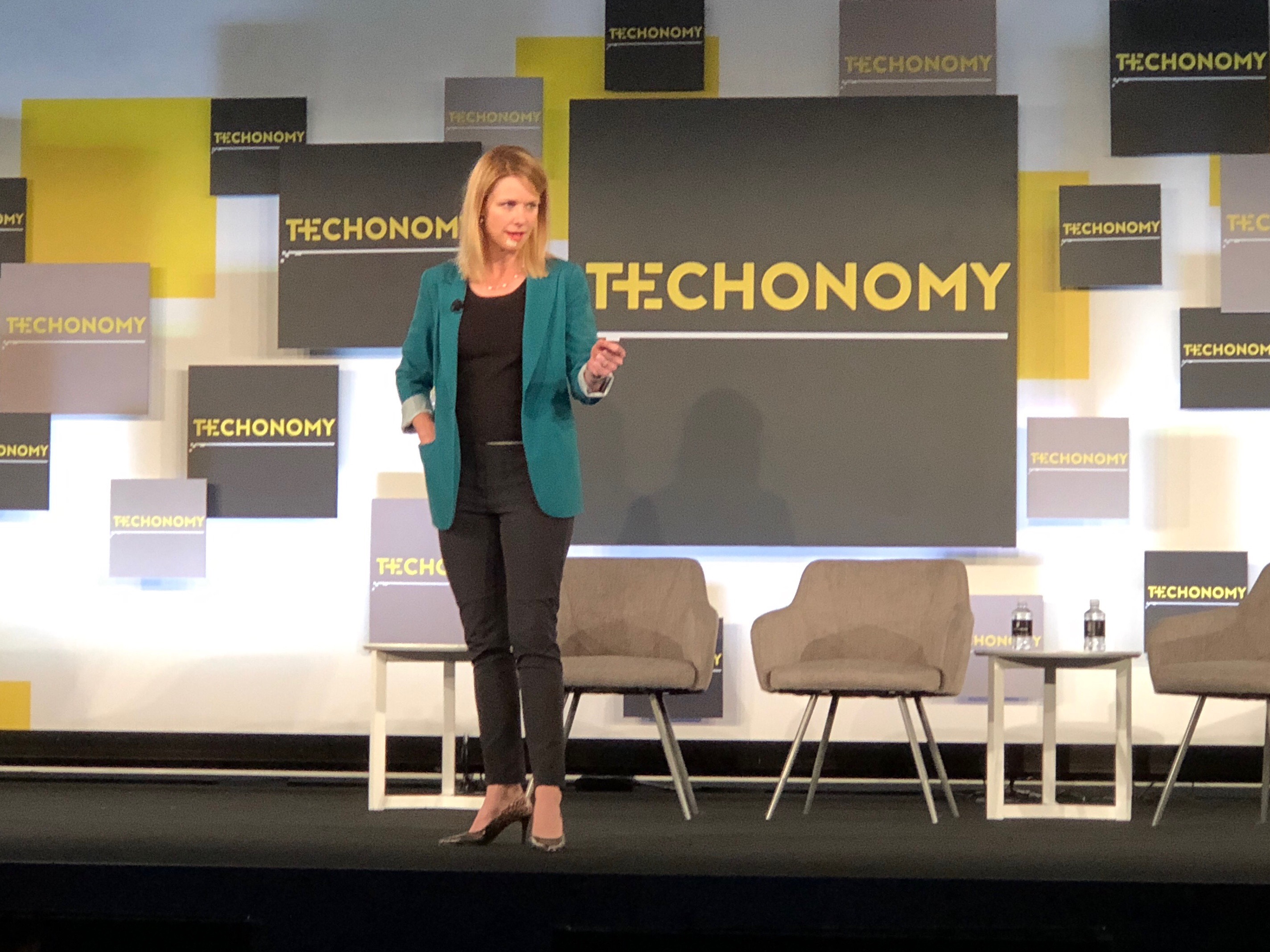
As an alum of the Opportunity Collaboration, I had the opportunity to attend Techonomy 17 on Tuesday morning. According to Wikipedia, Techonomy is the annual invitation-only thought leadership conference “which focuses on how the accelerating advancement of technology is transforming business and can help address the world’s pressing needs.” The highlight to last year’s Techonomy conference was Mark Zuckerberg‘s regrettable statement days after the Presidential election: “I think the idea that fake news on Facebook — of which it’s a very small amount of the content — influenced the election in any way is a pretty crazy idea.” See highlights from last year’s conference here. Now, Techonomy appears to be steering its focus towards advancing the United Nations’ 17 Sustainable Development Goals (“SDGs”). Read Building a Platform to Help Us All Rise Together.
Techonomy 17 Takaways
Cognitive Computing, Security and Innovation’s Promise: A Conversation With John Kelly, IBM (Interviewer: David Kirkpatrick, Techonomy)
Our world’s data doubles every 12 to 18 months. Using artificial intelligence (AI), we can harness and use this data in decision-making. This can move the needle forward on the ratio of optimal (or at least good) decisions being made in all areas and at all levels beyond one-third. But we’ll need to be very wary of cybersecurity, particularly with sophisticated attacks using AI. Personal, business, and national cybersecurity will be an AI vs. AI war.
Extending Reality – Marc Carrel-Billiard, Accenture; Tony Parisi, Unity Technologies (Moderator: Ina Fried, Axios)
Augmented reality (AR) and virtual reality (VR) are moving and merging towards extended reality for multiple senses. AR/VR will grow from a $14 billion business in 2017 to a $140 billion business by 2020. Within that same period, the consumer to enterprise market ratio will flip from 70:30 to 30:70. The technology to scale enterprise is not there yet, but it will be. Within 5 years, we should see regular weight AR/VR glasses with real life resolution.
180° Shift Talks
Voice is the New Touch – Katie McMahon, SoundHound Inc.
Ingenuity vs. Innovation: The Rise of the Human Element – Josh Reynolds, Rob Roy Consulting
Nowhere to Hide – Alison Taylor, BSR
McMahon (pictured above) provided a stunning demonstration of SoundHound’s voice-enabled AI that combines speech recognition and language understanding resulting in responsive conversational intelligence far, far beyond what we have come to expect from Siri and Alexa.
Reynolds emphasized the rise of Ingenuity over Innovation. He defines “innovation” as the creation of a brand new component that’s never been seen before, and “ingenuity” as the creative recombination of existing components into something more useful. Ingenuity is an inexhaustible human resource that allows industries to shift from a scarcity mindset.
Taylor noted that we are in an age of ultra-transparency where public trust in corporations has collapsed, whistleblower advocacy may have massive impact (e.g., Panama papers), corporations cannot keep secrets, and there is a battle between rumors and truth. In such an environment, there will be a continued focus on systems thinking, lobbying, and offshore accounts.
The Topsy-Turvy World of Media – Jeremy Legg, Turner; Steve Shannon, Roku (Moderator: Josh Kampel, Techonomy)
The panelists talked about the technology transition with traditional broadcast technology being adapted for use with new business models – direct-to-consumer, ad-supported, or transactional. Innovation shifts the economics of content monetization. Interestingly, Legg noted that the television set remains the most important medium for programming, with consumers spending 8 times more time watching programs on a television set rather than on a phone.
A View from China – Xiaoning Qi, C-SKY Microsystems (Interviewer: Selina Wang, Bloomberg News)
Qi discussed the evolving technology environment in China and noted China’s need to manufacture more technology products to meet its own demands (last year, it consumed 60% of the chips, but continues to import a large percentage from other countries). He advocated for more communication and trust between China and the U.S. to free up the U.S. to focus on innovation while China produces commodities (and chips are now commodities).
The Internet Under Attack – Mark Anderson, Strategic News Service; Peder Jungck, BAE Systems; Rebecca MacKinnon, Ranking Digital Rights at New America (Moderator: David Kirkpatrick)
This was one of the most interesting, but somewhat depressing, sessions. MacKinnon emphasized her fear that technology was leading forces of democracy and authoritarianism to simply meet in the middle rather than move us more towards democracy. Anderson noted that countries use the Internet to create advantages. Accordingly, countries must defend themselves. But advertising technology has been weaponized by authoritarians to gather information and squelch dissidents. Fake accounts remain a huge problem, but solutions must be developed with global consideration. The entire panel was distrustful of IoT (Internet-of-Things) due to the current lack of security and transparency and susceptibility to hacking.
Why Hyper-Local is the Future of Healthcare—and Capitalism: A Conversation With Mark T. Bertolini, Aetna Inc. (Interviewer: David Kirkpatrick)
Bertolini noted that currently, your zip code is a better predictor of your health than your genetic code. He observed that customers, not technology, will disrupt healthcare. Technology can help facilitate companies providing customers with what they want. Bertolini envisions Apple-like stores for health where people want to go and the delivery of health services in the home or at the corner store. Aetna is testing the provision of Apple watches to its insureds to incentivize better health, prevention being cheaper than treatment. This rationale also explains why Aetna pays its employees to get enough sleep.
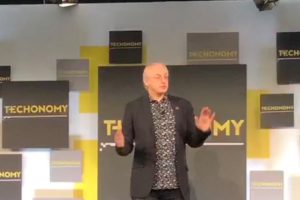
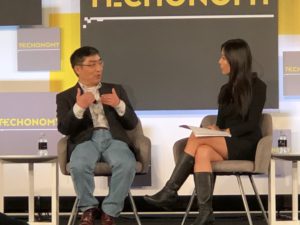
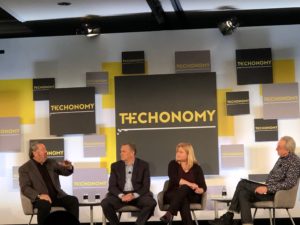
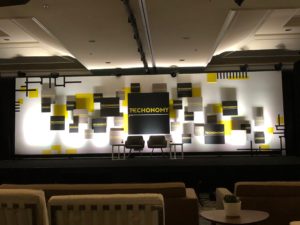
You must be logged in to post a comment.